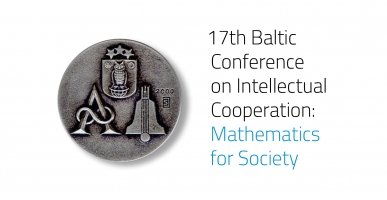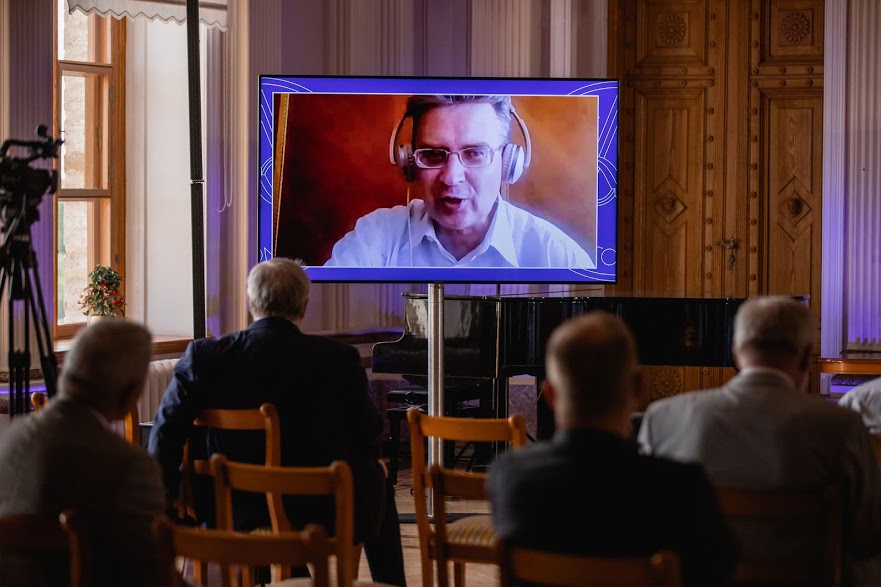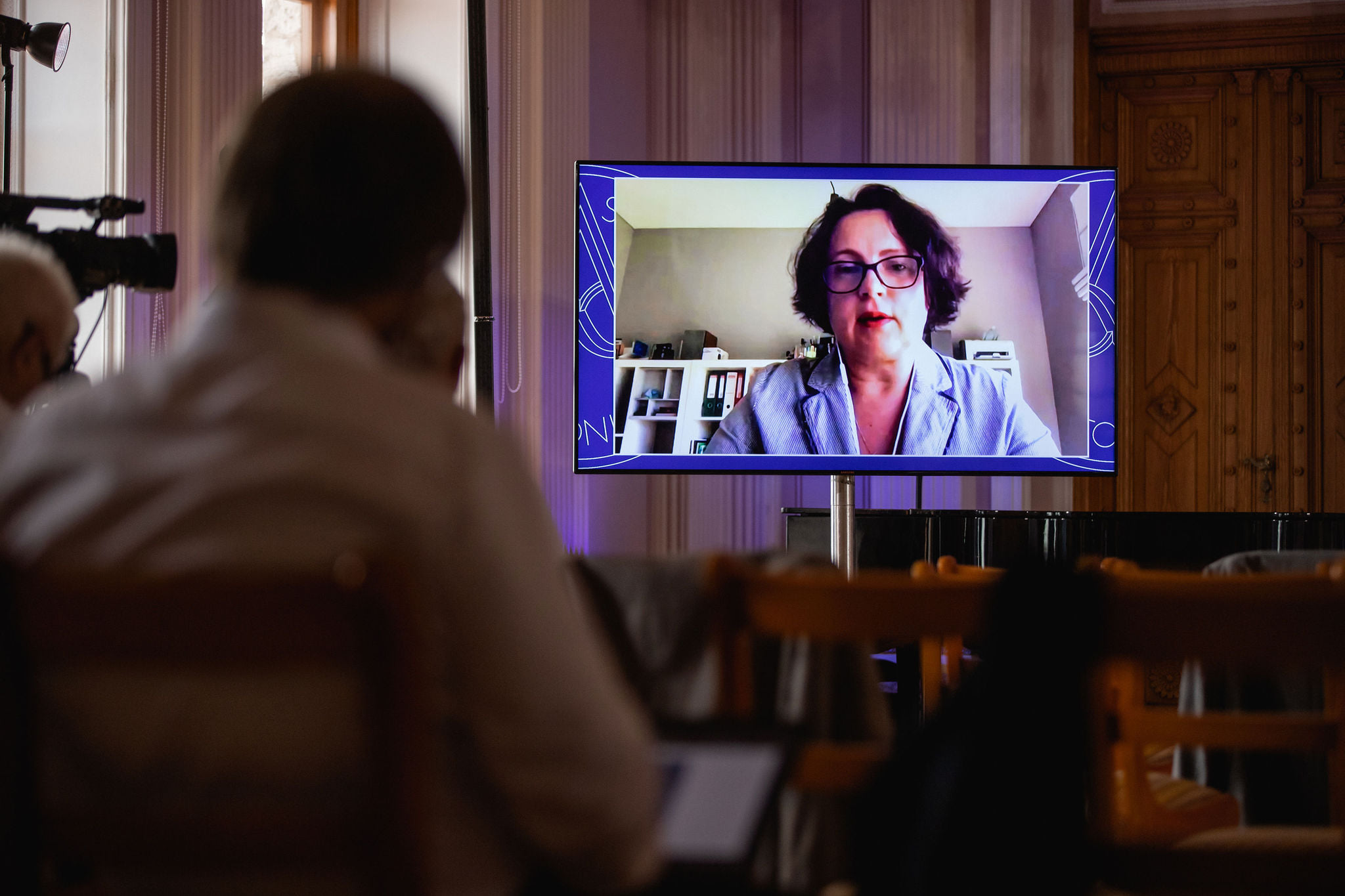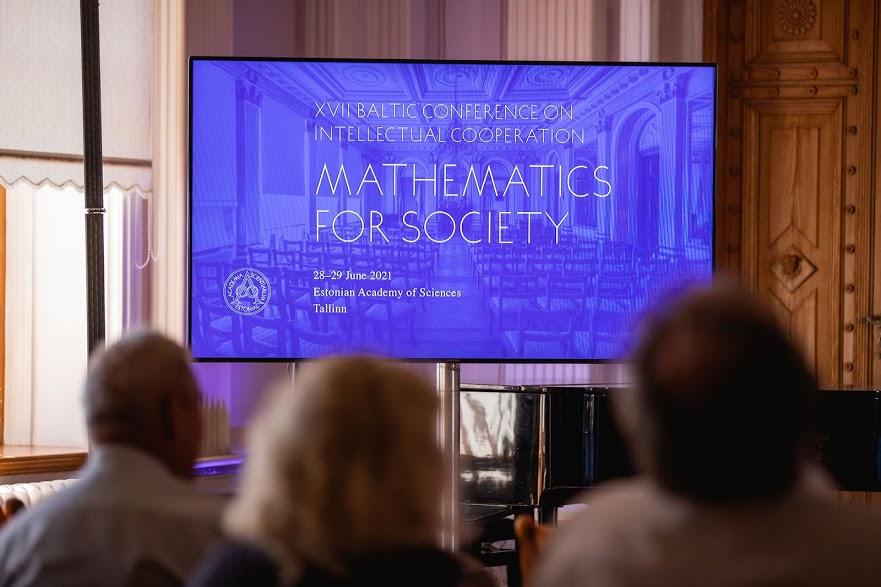Events
Mathematics is the language in which God wrote the universe (Galileo Galilei)
01 07 2021
The 17th Baltic Conference on Intellectual Co-operation (BCIC), ‘Mathematics for Society’, was held at the Estonian Academy of Sciences on 28 and 29 June 2021. This time, the focus was placed on mathematics, which is becoming increasingly relevant in modern society.
The conference was held in cooperation between the Estonian, Latvian, Lithuanian, Finnish, and Hamburg academies of sciences. It was conducted in three sections: ‘Mathematics in Politics’, ‘Mathematics and Modelling of COVID-19’, and ‘Applications of Mathematics’. A planned meeting of the presidents of the academies of sciences of the Baltic countries and a pre-conference seminar on topical energy issues were organised in parallel.
President of the Lithuanian Academy of Sciences prof. Jūras Banys
According to the conference website, its main theme was driven by the enormous contribution of numerous scientists to the analysis of the processes involved in the COVID-19 pandemic and to the development of a strategy for containing the pandemic. It argues that while the efforts of medical experts and life scientists have been widely recognised, the related achievements of the exact sciences, computer science, and engineering have yet to be acknowledged and appreciated. Therefore, the 17th BCIC conference focused on broad applications of mathematics, ranging from politics to genetics. The conference was held in a mixed format, including live broadcast.
Speakers included top researchers from the universities of the Baltic countries, Finland, and Germany. Four Lithuanian scientists shared their modelling experience. Prof. Olga Štikonienė from the Faculty of Mathematics and Informatics, Vilnius University, presented her paper ‘Dynamic Modelling of the Evolution of SARS-CoV-2 Epidemic in Lithuania’; Prof. Audronė Jakaitienė, also from the Faculty of Mathematics and Informatics, shared her expertise on functional pathways analysis for COVID-19 modelling. Prof. Česlovas Venclovas of the Life Sciences Centre, Vilnius University, spoke about computational modelling and analysis of 3D structures of proteins and protein complexes, and Prof. Jūratė Kriaučiūnienė, a representative of the Lithuanian Energy Institute, analysed the nature of the future changes of water resources of the Baltic region.

Prof. Olga Štikonienė from the Faculty of Mathematics and Informatics
Although the COVID-19 pandemic has been evolving differently in Lithuania, Latvia, and Estonia and researchers are assigned different tasks by their respective governments, similar models of pandemic analysis and forecasting have been chosen for modelling purposes. The conference showed that researchers in all participating countries became more visible and indispensable in society. The Baltic countries are small, but the rapid use of mathematical modelling to analyse the situation points to coordinated efforts of researchers not afraid to step out of their comfort zone and contribute to effective solutions to the problems facing their countries.
Tarmo Soomere, President of the Estonian Academy of Sciences, said that the COVID-19 pandemic made politicians and the public aware of the importance of those areas of research that are usually seen as abstract and with only insignificant contribution to solving actual problems. He closed the conference with the following words: Today we see how insightful Galileo Galilei was. It is now clear that mathematics is not only the language in which God wrote the universe, but also a handy and powerful tool that brings enormous benefit to societies wise enough to use it.

President of the Estonian Academy of Sciences prof. Tarmo Soomere
In modern society, the role of mathematics is crucial. It is at the centre of our daily lives, including mobile devices, architecture, art, finance, engineering, and even sport. With societies evolving and technology improving, mathematical needs are becoming more complex. Pure mathematics attempts to solve abstract problems, and these attempts have led to major discoveries by mankind, including Turing’s universal machine, the theory of which was put forward by Alan Turing in 1937 and which laid the foundation for the emergence of computers.
Modern mathematics is not just about solving abstract problems and proving theorems, but also about solving real-world problems. Applied mathematics encompasses mathematical physics, mathematical biology, management theory, aviation and space engineering, and financial and insurance mathematics. By no means is the list exhaustive. Applied mathematics not only solves problems, but also discovers new tasks and creates new engineering disciplines. In applied mathematics, the common approach is to develop a mathematical model of a real-world phenomenon, to analyse and solve the resulting mathematical problem, to interpret the mathematical results in the context of the original real-world situation, and to produce recommendations for improving operational performance.
Mathematical modelling is the art of writing down an applied task in mathematical formulations, the theoretical and numerical analysis of which provides insights, answers, and recommendations useful to the original applied problem. The range of the application of this method is really broad: from virtual reality in architecture to models of the origin of the Universe in cosmology, from the study of the human genome and the spread of infectious diseases in biology to computer animation and sound synthesis in music, from the dynamics of chemical reactions to climate change, and from risk analysis in finance to computer tomography in medicine.
The tradition of the conferences on Baltic intellectual cooperation goes back to 1935. Six conferences were held before the Second World War. During the Soviet occupation, this tradition was abandoned and was restored again when the Baltic countries regained their independence. These conferences provided an excellent opportunity for the top researchers and scientific leaders of the Baltic region to meet and discuss common issues. Over the years, selected presentations have addressed the most relevant topics in science and research policy.
Prof. Audronė Jakaitienė
Prof. Olga Štikonienė
Translated by Diana Barnard

